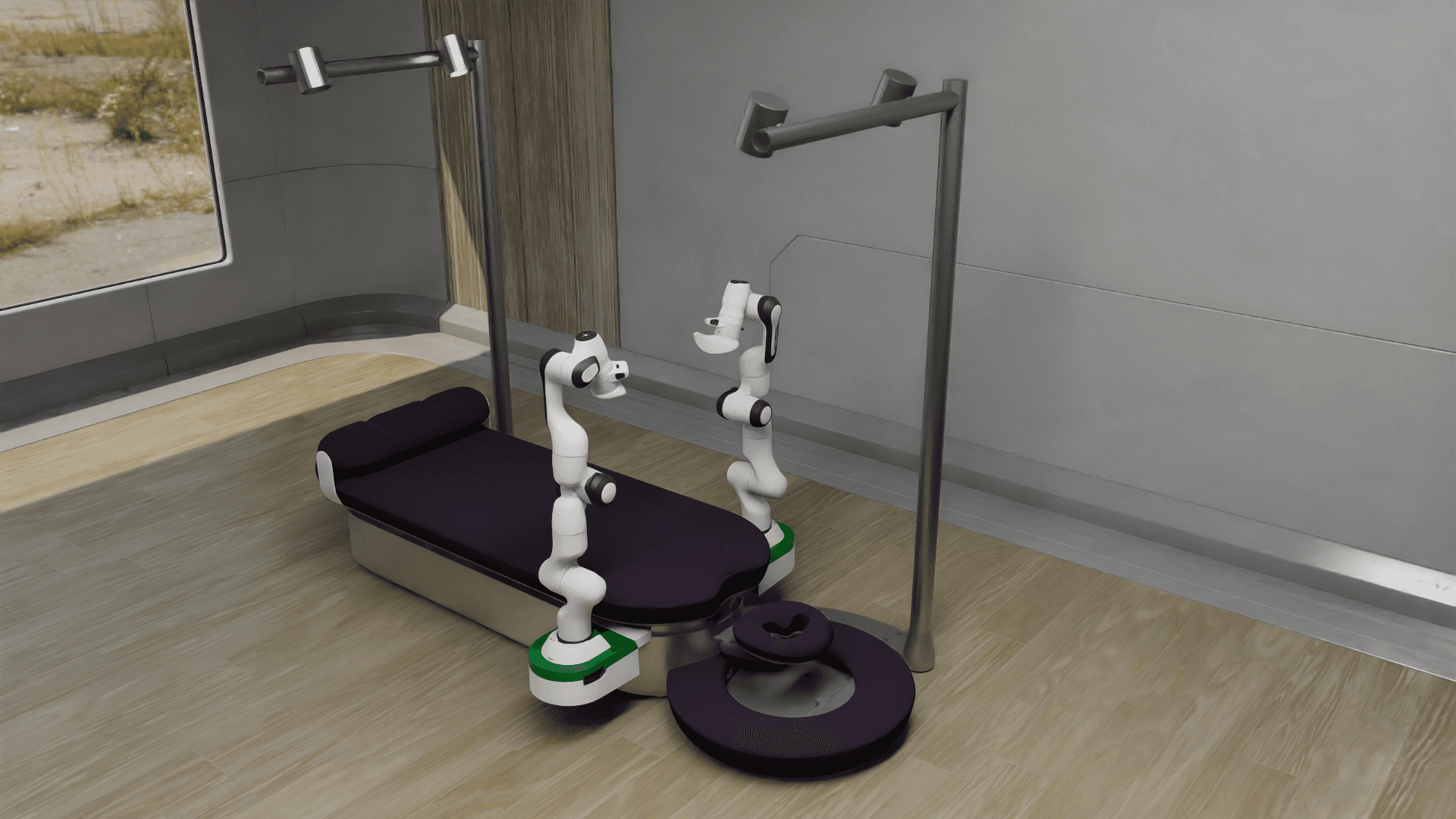Nurturing Your Mind and Body: The Link Between Physical and Mental Health

In the hustle and bustle of our daily lives, it's easy to overlook the remarkable connection between our physical and mental health. But hidden within us lies a surprising link — a harmony between mind and body that holds the key to our overall happiness and vitality.
Join us on a journey to explore the connection between physical and mental health. Together, we'll uncover the secrets that empower us to harmonize the elements of our existence and discover the incredible synergy between our minds and bodies.
The Mind-Body Connection: Understanding the Link
Optimizing your physical and mental health is essential for a balanced and fulfilling life. Engaging in regular physical activity, receiving massage therapy, maintaining a nutritious diet, and prioritizing quality sleep can have a profound impact on your mental well-being.
By nurturing the connection between your mind and body, you can experience increased happiness, reduced stress levels, improved cognitive function, and overall better mental health. Embrace the holistic approach to wellness and unlock the incredible synergy between your physical and mental well-being.
Remember to always prioritize your health and well-being by incorporating these key practices into your daily routine.
The mind-body connection is the interrelationship between our thoughts, emotions, and physical health. Research has shown that physical health has a profound impact on mental well-being and vice versa.
For instance, physical health issues such as chronic pain or illness can lead to feelings of depression and anxiety. Similarly, mental health conditions like stress and anxiety can manifest as physical symptoms such as headaches or digestive problems.
Understanding this connection is crucial for adopting a holistic approach to health.

Physical Activities for Mental Wellness
Engaging in regular physical activity not only benefits your physical health but also plays a vital role in promoting positive mental health and overall well-being. The connection between physical and mental health is profound, and incorporating certain activities into your routine can have a significant impact on your mood, stress levels, and overall mental well-being.
Here are four physical activities that are known to promote positive mental health:
1. Aerobic Exercises
Engaging in aerobic exercises, such as running, cycling, or swimming, can do wonders for your mental health. These activities increase your heart rate, release endorphins (feel-good hormones), and improve blood flow to the brain. Regular aerobic exercises have been linked to reduced symptoms of anxiety and depression, improved sleep quality, and increased self-esteem.
2. Yoga and Mindful Movement
Yoga combines physical movement, breath control, and mindfulness, making it a perfect activity for promoting both physical and mental well-being. Practicing yoga can enhance your body awareness, improve flexibility and strength, and help manage stress. The focus on breath and mindfulness during yoga practice can also calm the mind, reduce anxiety, and improve overall mental clarity.
3. Team Sports and Group Activities
Engaging in team sports or group activities, such as basketball, soccer, or dance classes, not only provides physical exercise but also fosters social connections and a sense of belonging. Being part of a team or a group activity promotes social interaction, boosts mood, and reduces feelings of loneliness or isolation. The camaraderie and support from others can enhance your overall mental well-being and provide a sense of community.
4. Outdoor Recreation and Nature Walks
Spending time in nature and engaging in outdoor activities, such as hiking, gardening, or simply taking leisurely walks in natural surroundings, has been found to have numerous mental health benefits. Being in nature can reduce stress, improve mood, increase attention span, and boost overall feelings of well-being. The combination of physical activity and exposure to natural environments can help alleviate symptoms of anxiety and depression while providing a sense of tranquility and connection to the world around you.
Remember, finding physical activities that you enjoy and can incorporate into your routine is key to reaping the mental health benefits they offer. Whether it's a solo jog in the park, a yoga class with friends, or a friendly game of soccer, these activities can contribute to a healthier body and a happier mind. Embrace the link between physical and mental health and discover the positive impact that these activities can have on your overall well-being.

How to Take Care of Your
Physical Health Beyond Exercise to Promote Positive Mental Well-Being
In this section, we will explore key practices and habits that can support your physical health journey and have a profound impact on your mental state. By adopting these strategies, you can enhance your overall well-being and unlock the powerful connection between physical and mental health.
1. Massage Therapy and Mental Health
Massage therapy has been shown to reduce symptoms of anxiety, depression, and stress and can even improve sleep quality. This is because massage therapy helps reduce the production of cortisol, a hormone associated with stress, and increases the production of serotonin and dopamine, which are associated with positive emotions.
In another study conducted by the Mayo Clinic, massage therapy was found to improve mood and boost self-esteem in participants with major depressive disorder. The study observed 65 participants receiving 8 weeks of massage therapy, and measured their self-reported depression levels prior to and after the treatment. The results showed a significant decrease in depression symptoms in the group that received massage therapy compared to the control group who did not receive any massage.
If you're interested in trying massage therapy to improve your mental health, be sure to find a qualified and experienced therapist who specializes in this area.
2. The Role of Nutrition in Mental Health
What we eat has a significant influence on our mental well-being. A balanced diet that includes essential nutrients supports brain function and promotes mental health.
Conversely, consuming excessive amounts of sugar, caffeine, and processed foods can negatively affect our mood and contribute to mental health issues. To nurture your mind and body, prioritize whole, unprocessed foods, eat plenty of fruits, vegetables, and whole grains, and ensure a balance of macronutrients.
Additionally, incorporate foods rich in omega-3 fatty acids and antioxidants into your diet, which have been linked to improved mental well-being.
3. Sleep and Its Impact on Physical and Mental Well-being
Quality sleep plays a crucial role in maintaining optimal physical & mental health. During sleep, our bodies undergo essential processes that support physical restoration and healing. It is during this time that our muscles repair and grow, our immune system strengthens, and our hormones regulate.
Adequate sleep contributes to improved athletic performance, faster muscle recovery, enhanced immune function, and better cardiovascular health.
Research has shown that sleep deprivation can contribute to various mental health issues, such as depression, anxiety, and irritability. Additionally, a lack of sleep can disrupt our metabolism, leading to weight gain and an increased risk of chronic conditions such as obesity, diabetes, and heart disease.
Prioritizing quality sleep allows our bodies to function at their best, physically and mentally.
To enhance your sleep and promote optimal physical and mental well-being, consider implementing these practices:
- Establish a consistent sleep routine: Set a regular sleep schedule, aiming for 7-8 hours of sleep each night. Going to bed and waking up at consistent times helps regulate your body's internal clock, promoting better sleep quality.
- Create a sleep-friendly environment: Minimize noise and light in your bedroom to create a peaceful atmosphere. Consider using earplugs, eye masks, or white noise machines if needed. Make your sleep environment comfortable and conducive to relaxation.
- Limit exposure to stimulating substances: Avoid consuming caffeine and alcohol before bedtime, as they can disrupt your sleep patterns. Additionally, limit your exposure to smartphone screens and other sources of blue light, as they can interfere with your natural sleep-wake cycle.
- Practice relaxation techniques: Engage in relaxation techniques such as deep breathing exercises, meditation, or gentle stretching before bedtime. These activities can help calm your mind and prepare your body for a restful sleep.
By prioritizing quality sleep, you can rejuvenate both your body and mind, enabling you to approach each day with enhanced clarity, energy, and overall physical well-being.
Remember, establishing healthy sleep habits is an integral part of nurturing your physical health while positively impacting your mental well-being.
4. Stress Management Techniques for Optimal Mind-Body Health
Stress can take a toll on both our physical and mental health. Incorporating stress management techniques into our daily lives is crucial to maintaining overall well-being.
Regular exercise and physical activity are excellent stress relievers, as they help reduce cortisol levels and promote relaxation. Mindfulness and meditation practices can also alleviate stress and anxiety, improve focus, and cultivate a sense of inner peace.
Furthermore, seeking social support and engaging in hobbies or activities that you enjoy can help reduce stress levels and boost mental wellness.

Seeking Professional Help and Resources
Sometimes, taking care of your physical and mental health may require professional assistance. It is important to recognize when it's time to seek help for the sake of your overall well-being.
Mental health professionals, such as therapists or counselors, can provide guidance and support tailored to your specific needs. Support groups and community resources also offer a valuable network of individuals who share similar experiences and can provide empathy and understanding.
Moreover, online platforms and applications focused on mental wellness can provide educational resources, tools for self-care, and access to virtual support networks.
Physical and Mental Health FAQs
1. How does physical health affect your mental health?
Physical and mental health are closely linked, and taking care of your body can positively impact your mind. Regular physical activity has been shown to release endorphins, the body's feel-good chemicals, which can help to reduce stress and anxiety.
Exercise can also help improve sleep quality, which is vital for physical and mental health. Eating a healthy diet and getting enough sleep are also essential for good physical and mental health.
2. Why is both physical and mental health important?
Physical and mental health are both important because they are closely interconnected. Poor physical health can lead to poor mental health and vice versa.
Taking care of your physical and mental health can help prevent a range of health problems and improve your overall quality of life.
3. What is the relationship between physical and mental health?
The relationship between physical and mental health is complex, but research has shown that the two are closely intertwined.
Proper and adequate care of your physical health can positively impact your mental health. Also, poor physical health can lead to poor mental health.
4. What things contribute to poor mental and physical health?
Many factors can contribute to poor mental and physical health, including a lack of physical activity, poor nutrition, chronic stress, lack of sleep, and substance abuse. Addressing these factors is essential to maintaining good physical and mental health.
5. How do you stay healthy physically and mentally?
There are many things you can do to stay healthy physically and mentally. Regular physical activity is essential, as is eating a healthy diet and getting enough sleep.
Managing stress through relaxation techniques like meditation and deep breathing can also be helpful. It's important to prioritize self-care and seek support when needed, whether through therapy or by reaching out to friends and family.
Conclusion
Incorporating these lifestyle changes into your routine can be challenging at first, but the benefits are well worth the effort. Start by setting small, achievable goals for yourself, such as taking a 10-minute walk each day or trying a new healthy recipe each week. Over time, you can build on these goals and progress significantly toward improving your physical and mental health.
Remember, nurturing your mind and body is an ongoing process that requires patience, commitment, and self-care. By prioritizing your physical and mental well-being, you can achieve greater balance, happiness, and fulfillment in your life.
At Aescape, we're committed to helping you achieve optimal health and wellness. Take the first step to nurturing your mind and body today and unlock the surprising link between physical and mental health. You deserve to live a life that is healthy, vibrant, and filled with joy.




























